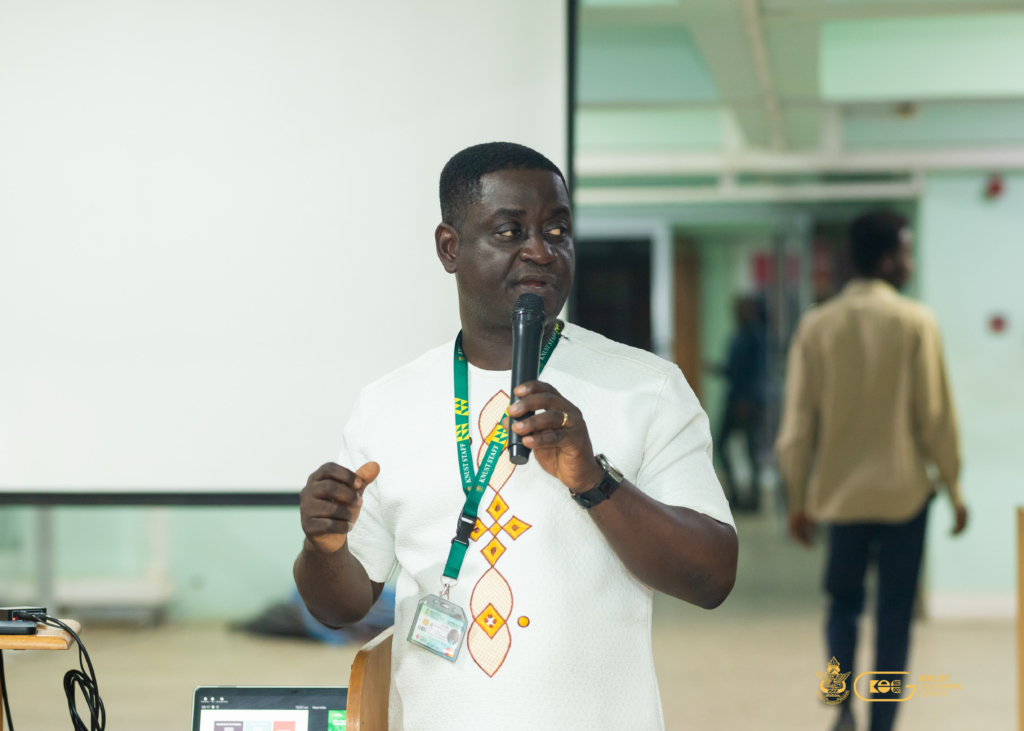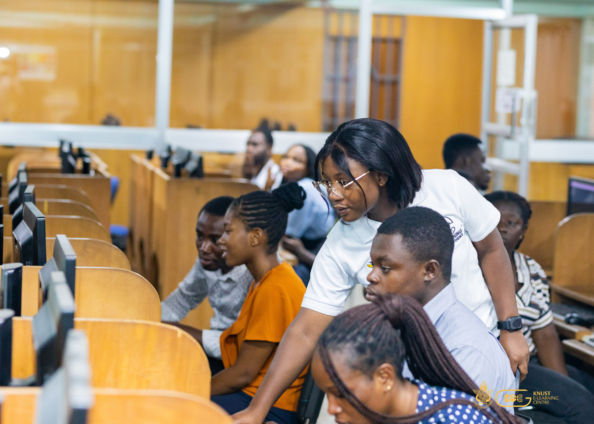Students in tertiary institutions worry face to face teaching is gradually becoming a drawback in accessing higher education.
Socio-economic background and geographical location have excluded some groups from learning in institutions offering exclusive in-person classes.
This is slowing down the progress of education.
In-person teaching and learning has been the traditional way of learning for decades.
However, as the student population increases in all tertiary institutions, lecturers and teaching assistants find it hard managing class sizes.
On the other hand, students disregard unfavorable weather conditions to attend lectures or submit assignments.
Both parties describe this as tedious and worrisome. Benedict Afriyie, is a student at the Kwame Nkrumah University of Science and Technology.
“In class, I am unable to hear the lecturer. Usually, the lecturers do not use microphones. Sometimes, the class is so huge you will not find a sitting place. There are times we walk all the way from our hostels to submit assignments,” he revealed.
Tertiary institutions struggle with space for lessons. Emmanuella Gidi, a student lives farther from the university.
She reveals some of her colleagues have missed examinations and class hours due to change of venues for lectures.
“I live at Boadi and come to Kotei for lectures daily. It is quite a distance. I wake up early and rush is. Getting a shuttle from Boadi to campus is a struggle. My colleagues and I missed lectures a few times,” she said.
Frank Boateng Agyemang, a student, is intimidated speaking in front of a class of over 200 students
This has limited his interaction and opportunity for valuable feedback.
“Questions are asked and you will see the supposed brilliant students answering fiercely. This makes us question our intelligence,” he revealed.
The E-Learning Centre of the Kwame Nkrumah University of Science and Technology seeks to open up education to more people by offering online learning courses
The Centre is tutoring Teaching Assistants in the university on the usage of online platforms for teaching and learning.
“They are going to offer teaching assistance to students who may be familiar with online platforms. This means they must always be a step ahead,” said Professor Eric Appau Asante, Director of KNUST E-Learning Centre.

Latest Stories
-
Bole-Bamboi MP support artisans and Bole SHS
5 mins -
Top up your credit to avoid potential disruption – ECG to Nuri meter customers
10 mins -
We’ll cut down imports and boost consumption of local rice and other products – Mahama
3 hours -
Prof Opoku-Agyemang donates to Tamale orphanage to mark her birthday
4 hours -
Don’t call re-painted old schools brand new infrastructure – Prof Opoku-Agyemang tells gov’t
4 hours -
Sunon Asogli plant will be back on stream in a few weeks – ECG
5 hours -
ECOWAS deploys observers for Dec. 7 election
5 hours -
73 officers commissioned into Ghana Armed Forces
5 hours -
Impending shutdown of three power plants won’t happen – ECG MD
5 hours -
Ghana shouldn’t have experienced any ‘dumsor’ after 2017 – IES Boss
6 hours -
Lamens flouted some food safety laws in re-bagging rice – Former FDA Boss Alhaji Hudu Mogtari
6 hours -
Afcon exit: Our issue is administrative failure and mismanagement, not lack of talent – Saddick Adams
7 hours -
WAPCo to commence major pipeline maintenance and inspection from November 25
7 hours -
CEO of Oro Oil Ghana Limited Maxwell Commey listed among the 100 Most Influential People Awards, 2024
7 hours -
Power crisis: Amandi is off due to maintenance, not debt – ECG Boss
7 hours

